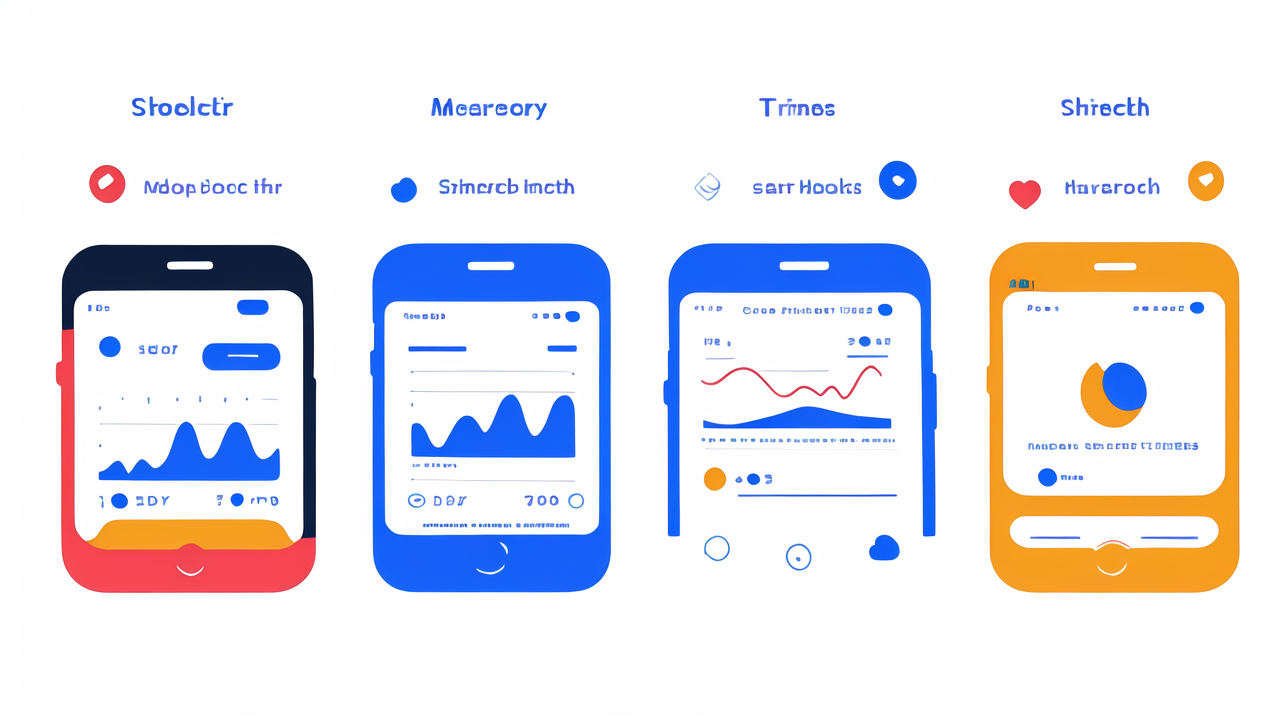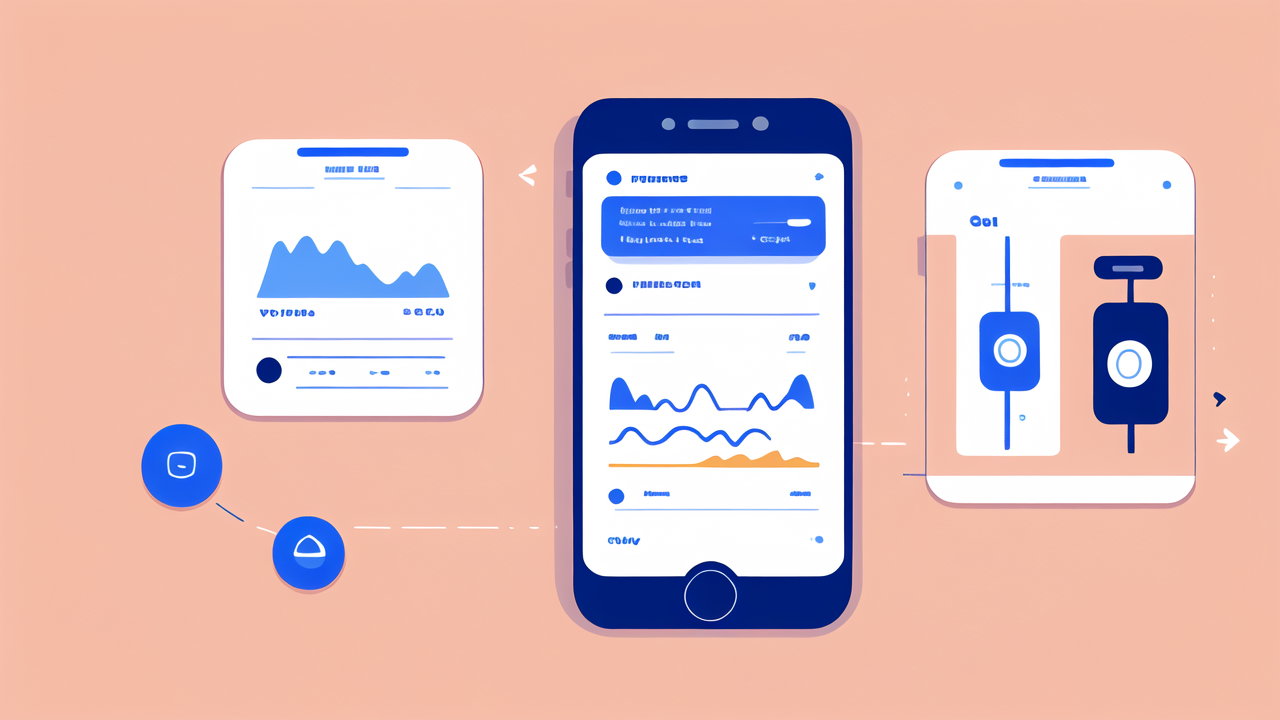The Evolution of Wearable Technology in Health Care
Overview of Wearable Fitness Devices
Wearable fitness devices have come a long way in recent years. They started as simple step counters. Now, they're advanced tools that track various health metrics. These gadgets can monitor heart rate, sleep patterns, and even stress levels.

Many people use fitness trackers to set and achieve health goals. They're popular among both athletes and everyday users. The market for these devices has grown rapidly. Companies like Fitbit, Apple, and Garmin lead the way in this field.
Wearable fitness devices offer several benefits:
- Real-time health data
- Motivation to stay active
- Easy tracking of progress
- Personalized fitness insights
As technology improves, these devices become more accurate and useful. They're changing how we approach personal health and fitness.
The Digital Pocket Watch: A Modern Health Tool
The digital pocket watch has evolved into a powerful health tool. It's no longer just for telling time. Today's digital pocket watches can track various body measurements. They're compact, easy to use, and packed with features.
These devices often include:
- Heart rate monitors
- Step counters
- GPS tracking
- Sleep analysis tools
Digital pocket watches are popular among health-conscious individuals. They offer a discreet way to monitor health metrics throughout the day. Some models can even alert users to potential health issues.
The convenience of digital pocket watches makes them ideal for continuous health tracking. They're changing how we think about personal health monitoring.
The Shift from Fitness Wearables to Health-Centric Devices
Wearable technology is moving beyond fitness tracking. It's now focusing more on overall health monitoring. This shift reflects a growing interest in preventive healthcare. People want devices that can help them maintain good health, not just track workouts.
Health-centric wearables can monitor:
- Blood pressure
- Blood glucose levels
- Oxygen saturation
- Body temperature
These devices are becoming more sophisticated. They can detect early signs of health problems. This allows users to take proactive steps to improve their health. Some devices can even share data directly with healthcare providers.
The move towards health-centric wearables is changing the wearable tech industry. It's opening up new possibilities for personal health management.
Integrating Digital Pocket Watches into the Healthcare Industry
Enhancing Patient Monitoring with Advanced Watch Technology
Digital pocket watches are revolutionizing patient monitoring. They allow for continuous tracking of vital signs. This is especially useful for patients with chronic conditions. Doctors can get real-time data without the need for hospital visits.

These watches can monitor:
- Heart rate and rhythm
- Blood pressure
- Respiratory rate
- Activity levels
Advanced watch technology helps detect health issues early. It can alert healthcare providers to sudden changes in a patient's condition. This leads to faster interventions and better outcomes.
Digital pocket watches are also improving remote patient monitoring. They're making it easier for doctors to care for patients from a distance. This is particularly valuable in rural areas or during pandemics.
The Role of Smart Watches in Personalized Medicine
Smart watches are playing a crucial role in personalized medicine. They collect vast amounts of health data. This data helps doctors tailor treatments to individual patients. Smart watches can track how patients respond to medications or lifestyle changes.
Key benefits of smart watches in personalized medicine include:
- Continuous health monitoring
- Personalized health insights
- Medication reminders
- Early detection of health issues
These devices are helping patients take a more active role in their health care. They provide real-time feedback on health metrics. This empowers users to make informed decisions about their health.
Smart watches are also aiding in clinical trials. They can provide researchers with more detailed and accurate data. This could lead to faster development of new treatments.
Case Studies: Successful Implementation of Digital Pocket Watches
Several case studies highlight the success of digital pocket watches in healthcare. One study focused on managing diabetes. Patients used watches to track blood glucose levels and activity. The results showed improved glucose control and increased physical activity.
Another case study looked at heart health. Participants wore digital pocket watches that monitored heart rhythm. The devices successfully detected irregular heartbeats in several users. This led to early interventions and potentially prevented serious health issues.
A third study examined sleep patterns in shift workers. The watches tracked sleep duration and quality. The data helped workers adjust their schedules for better rest. This led to improved alertness and job performance.
These case studies demonstrate the practical benefits of digital pocket watches in healthcare. They show how these devices can improve patient outcomes and quality of life.
Future Trends in Wearable Technology for Health and Wellness
Innovations in Body Metric Tracking
The future of wearable technology is exciting. New innovations are constantly emerging in body metric tracking. These advancements promise to make health monitoring even more comprehensive and accurate.

Some upcoming innovations include:
- Sweat analysis for hydration and electrolyte balance
- Continuous blood pressure monitoring without a cuff
- Non-invasive blood glucose monitoring
- Advanced sleep tracking with brain wave analysis
These new technologies will provide more detailed health insights. They'll help users and healthcare providers make better-informed decisions. The goal is to detect potential health issues before they become serious problems.
Wearable technology is also becoming more integrated into clothing and accessories. This will make health tracking even more seamless and convenient for users.
The Impact of AI and Machine Learning on Wearable Devices
Artificial Intelligence (AI) and Machine Learning (ML) are transforming wearable devices. These technologies are making health trackers smarter and more useful. AI can analyze vast amounts of data to provide personalized health insights.
AI and ML are improving wearables in several ways:
- More accurate health predictions
- Personalized health recommendations
- Early detection of health anomalies
- Improved data interpretation
As these technologies advance, wearables will become more like personal health assistants. They'll be able to provide tailored advice based on individual health patterns. This could revolutionize preventive healthcare.
AI and ML are also enhancing the user experience of wearable devices. They're making interfaces more intuitive and responsive to user needs.
Regulatory Challenges and Opportunities in the Wearable Health Tech Market
The rapid growth of wearable health tech brings both challenges and opportunities. Regulators are working to keep up with the fast-paced innovations. They need to ensure these devices are safe and effective without stifling innovation.
Key regulatory challenges include:
- Ensuring data privacy and security
- Validating the accuracy of health measurements
- Defining the line between wellness devices and medical devices
- Standardizing data collection and sharing protocols
However, these challenges also present opportunities. Clear regulations can boost consumer confidence in wearable health tech. They can also create a level playing field for companies in the market.
Regulators and industry leaders are working together to address these issues. The goal is to create a framework that protects consumers while encouraging innovation. This collaboration could lead to safer, more effective wearable health devices.




Leave a comment
This site is protected by hCaptcha and the hCaptcha Privacy Policy and Terms of Service apply.